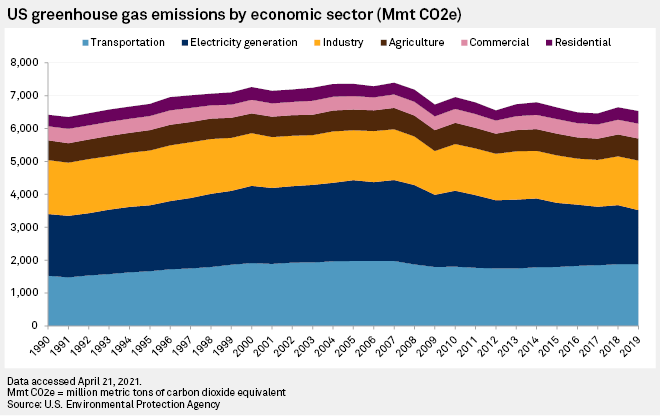Featured Topics
Featured Products
Events
S&P Global Offerings
Featured Topics
Featured Products
Events
S&P Global Offerings
Featured Topics
Featured Products
Events
S&P Global Offerings
Featured Topics
Featured Products
Events
Financial and Market intelligence
Fundamental & Alternative Datasets
Government & Defense
Professional Services
Banking & Capital Markets
Economy & Finance
Energy Transition & Sustainability
Technology & Innovation
Podcasts & Newsletters
Financial and Market intelligence
Fundamental & Alternative Datasets
Government & Defense
Professional Services
Banking & Capital Markets
Economy & Finance
Energy Transition & Sustainability
Technology & Innovation
Podcasts & Newsletters
30 Nov, 2021
Roughly half the technologies required to achieve net-zero emissions from the world economy by 2050 are not ready for commercial deployment, but a new coalition of major companies could jump-start market demand to get these innovations to market within a decade, according to a senior adviser to U.S. President Joe Biden's top climate envoy.
The idea is that coalition members can use their "enormous purchasing power" to commit to early procurement guarantees and policies supporting technologies like hydrogen and sustainable aviation fuel, sending a demand signal for innovations to curb planet-warming emissions in sectors that are the hardest to decarbonize, said Varun Sivaram, senior director for clean energy and innovation for Special Presidential Envoy for Climate John Kerry. The targeted sectors represent about a third of the world's carbon emissions and include aviation, shipping, heavy trucking and steel, which are major consumers of fossil fuels.
"These commitments can only be met if innovators bring new technologies to market, but those innovators and the investors in their manufacturing facilities now know that they have firm market demand waiting for them," Sivaram said. "This is only one part of the puzzle. In addition to the demand signal, you will need supply. You will need the technologies and the innovators."
Corresponding efforts will also be needed to develop associated infrastructure such as hydrogen refueling facilities, Sivaram said. The official spoke during a Nov. 30 online event hosted by the Center for Strategic and International Studies.
The First Movers Coalition was announced by the U.S. during the recent CO26 climate summit in Glasgow, Scotland with some 34 companies representing about $6 trillion in combined market capitalization.
Many of the companies in the coalition already had procurement targets. Founding members included heavyweights such as Danish shipping company A.P. Møller - Mærsk A/S, Australian iron ore producer Fortescue Metals Group Ltd. and aviation majors such as Delta Air Lines and United Airlines Holdings Inc. The group also included companies like commodity trader Trafigura Group Pte. Ltd., auto manufacturer Volvo Car and tech titans such as Amazon.com Inc. and Apple Inc. The nongovernmental organization World Economic Forum partnered with the U.S. special presidential envoy for climate in developing the coalition.

The coalition aimed to commercialize emerging clean energy technologies by 2030 and set them on a path for wider deployment by 2050, when many nations' net-zero targets come due. Sivaram compared the coalition's approach to the successful efforts that promoted innovations in spaceflight and vaccines.
The International Energy Agency, in its roadmap for reaching a net-zero emissions global energy sector by 2050, pointed to a need for "widespread use of technologies that are not on the market yet," in addition to the rapid deployment of available technologies.
"Major innovation efforts must occur over this decade in order to bring these new technologies to market in time," the IEA said in the May report. "Most of the global reductions in CO2 emissions through 2030 in our pathway come from technologies readily available today. But in 2050, almost half the reductions come from technologies that are currently at the demonstration or prototype phase."
The First Movers Coalition commitments included purchasing volumes of near-zero emission steel, with steel purchasers setting a target that at least 10% of their annual steel procurement volumes meet or exceed that definition by 2030. Members also committed to purchase medium and heavy-duty zero-emissions vehicles by 2030 that include battery or fuel-cell electric vehicles that enable the use of renewable generation sources or hydrogen. Trucking owners and operators agreed to target at least 30% of their heavy-duty trucks and 100% of their medium-duty truck purchases being zero-emission vehicles by 2030. Retailers and manufacturers in the group also set a goal of requiring all their trucking service providers to meet that commitment in the same timeframe.
In the shipping sector, coalition members committed to using zero-emission fuels in new and retrofitted vessels by 2030, while carriers set a target that at least 5% of deep-sea shipping will be powered by zero-emissions fuels. Cargo owners also set a target that at least 10% of the volume of their internationally shipped goods will be transported on ships using zero-emissions fuels by 2030 before climbing to 100% by 2040.
Commitments in aviation included the use of emerging technologies such as fuels with significant emissions reductions, along with electric and hydrogen propulsion for air travel by 2030. Airlines and air transport companies agreed to target replacing at least 5% of conventional jet fuel demand by 2030 with sustainable aviation fuels that cut emissions by 85% or more or using zero-carbon emitting propulsion technologies. Airfare and air freight purchasers set a similar goal.
"In the constellation of corporate activities today, this can be one of the most high-impact things that corporations can do," Sivaram said.